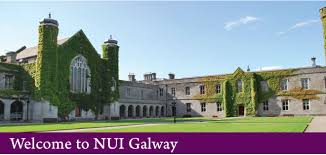Master of Sciences (Microscopy and Imaging)
Course Overview
The visualisation and interpretation of a sample under the microscope is a fundamental skill required for research today. This new exciting programme will provide graduates with a highly marketable and transferable combination of skills required for academic, industrial, public and private sectors. Based in the Centre for Microscopy and Imaging, a multidisciplinary collaborative team which are involved in many aspects of basic science and medical research will deliver the course. This MSc programme aims to up-skill participants with practical hands-on microscopy and imaging techniques, associated sample preparations skills and analysis. Currently, it is the only programme of its kind being offered by an Irish University.
In this multidisciplinary field where biology, physics, medicine, engineering and communication skills are brought together and are valued in many areas of employment and research including basic science, biomedical engineering and industry. This course aims to provide training for applied roles such as laboratory managers, technical staff positions, sales or product development, service laboratories of universities, or health-related institutes. It will also serve to assist with the progression of students to further education. Microscopy, related sample preparation skills, and analysis are now an essential component of the majority of biological science research projects and a necessity for high impact publications.
Most modules will have associated laboratory or practical components which will develop the students’ knowledge of cutting edge microscopy practises and techniques. Students will also learn translational skills which may be applied in the work force.
Allied NUI Galway course
- Cellular manufacturing and therapy and the production of advanced medicinal products is quickly evolving as the future of medicine.
Scholarships Available
Intakes
- Sep
Application Processing Time in Days: 30
Minimum English Language Requirements
| English Level Description | IELTS (1.0 -9.0) | TOEFL IBT (0-120) | TOEFL CBT (0-300) | PTE (10-90) | |
|---|---|---|---|---|---|
| Expert | 9 | 120 | 297-300 | 86-90 | |
| Very Good | 8.5 | 115-119 | 280-293 | 83-86 | |
| Very Good | 8 | 110-114 | 270-280 | 79-83 | |
| Good | 7.5 | 102-109 | 253-267 | 73-79 | |
| Good | 7 | 94-101 | 240-253 | 65-73 | |
| Competent | 6.5 | 79-93 | 213-233 | 58-65 | |
| Competent | 6 | 60-78 | 170-210 | 50-58 | |
| Modest | 5.5 | 46-59 | 133-210 | 43-50 | |
| Modest | 5 | 35-45 | 107-133 | 36-43 | |
| Limited | 4 | 32-34 | 97-103 | 30-36 | |
| Extremely Limited | < 4 | < 31 | < 93 | < 30 |
Admission Requirement / Eligibility Criteria
Entry Requirements
Candidates must hold at least an upper second class honours primary degree (NFQ Level 8 or international equivalent qualification) in relevant biological or biomedical sciences, physical sciences or engineering field. Graduates with a Level 7 degree and who can demonstrate that they have at least 2–3 years relevant experience in research or industry may also be considered. Applicants whose first language is not English must also demonstrate English language proficiency as per university guidelines. A personal statement of approximately 500 words and a curriculum vitae (CV) must be supplied on application, along with academic transcripts. Candidates will be selected based on examination records, previous relevant experience, and personal statement. Candidates may be requested to deliver a short presentation on a topic provided by the selection committee and course coordinators. Short listed candidates may be invited for interview.
Additional Requirements
Modules are assessed by examinations at the end of Semester One and Semester Two and/or by continuous assessment. A variety of different assessment strategies are used, including written examinations, laboratory practicals and mini-project reports, assignments, data-handling exercises, experimental reasoning, essays, posters, oral presentations and a research project thesis must also be submitted.
- Course Type: Full Time
- Course Level: Masters/PG Degree
- Duration: 01 Year
-
Total Tuition Fee:
15200 EUR
Annual Cost of Living: 12150 EUR
Application Fee: 35 EUR
Similar Programs
- Structured Masters (Chemistry) at National University of Ireland Galway
- Master in Health Sciences (Palliative Care) at National University of Ireland Galway
- Master in Health Sciences (Oncology and Haematology) at National University of Ireland Galway
- M.Sc (Occupational and Environmental Health and Safety) at National University of Ireland Galway
- M.Sc (Occupational Health and Safety Top Up) at National University of Ireland Galway
- Master of Applied Science (Occupational Safety Engineering and Ergonomics) at National University of Ireland Galway

